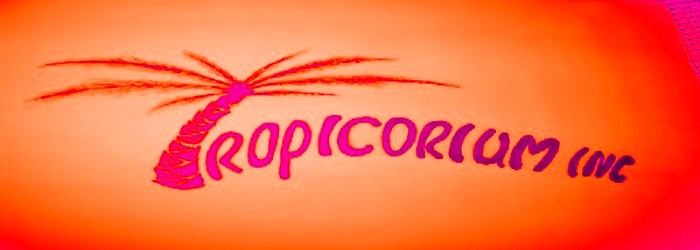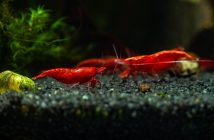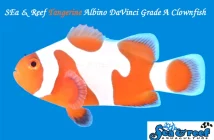We’ve been covering the legal woes of Tropicorium owner Richard Perrin rather extensively, and we might finally have come to a close on his story. As you probably recall, Perrin and an associate were arrested and found guilty of illegally harvesting wildlife from Florida. Well, the sentencing phase of their trials have come to a close, and according to court documents, Perrin was sentence to a three year term of probation, a criminal fine of $15,000, and forfeiture of the vehicle he used to traffick the wildlife. While this seems like nothing more than a slap on the wrist, he was given this light sentence due to his cooperation with the investigation and also in helping bring other violators to justice.
Because there is little more to add to the story that we haven’t already stated, we’ll leave you with the court’s official release:
Michigan Aquarium Store Operator Sentenced For Illegal Trafficking Of Marine Life
FOR IMMEDIATE RELEASEMarch 26, 2014
Wifredo A. Ferrer, United States Attorney for the Southern District of Florida, Tracy Dunn, Acting Special Agent in Charge, NOAA Fisheries Office of Law Enforcement, and Edward Grace, Deputy Assistant Director, U.S. Fish & Wildlife Service, Office of Law Enforcement, announce that Richard Perrin, 80, of Romulus, Michigan, was sentenced today for conspiring with others to commit certain offenses against the United States, that is: transport, sell, receive, acquire, and purchase fish and wildlife, that is marine invertebrates, Sea Fans (Gorgonia flabellum and Gorgonia ventalina), ornamental tropical fish, sharks, and alligators (Alligator mississippiensis), with a fair market value in excess of $350.00, knowing the wildlife was taken, possessed, transported, sold, and intended to be sold in violation of the laws and regulations of the State of Florida, in violation of Title 16, United States Code, Sections 3372(a)(2)(A), 3372(a)(4), and 3373(d)(1) and (2), all in violation of Title 18, United States Code, Section 371.
U.S. District Judge Jose E. Martinez, who had previously accepted Perrin’s guilty plea, after granting a government motion for a downward departure in the case, based on Perrin’s extensive cooperation and assistance in the investigation and prosecution of others, imposed a sentence of a three year term of probation, a criminal fine of $15,000, and forfeiture of the vehicle used in the commission of the Lacey Act violations. Perrin’s co-defendant, Joseph Franko, 35, also of Romulus, is awaiting sentence in Key West on April 14, 2014, at 10:00 a.m.
According to the indictment and joint factual statements submitted to the Court, during the period extending from December 2008 through approximately December 2011, Perrin and Franko engaged in a conspiracy to purchase, harvest, and transport marine life and reptiles from Florida to Michigan for sale through a business known as Tropicorium, Inc. Perrin was the owner Tropicorium, engaged in the day-to-day management and operation of the corporation, while Franko was an employee. Tropicorium was organized in 1993 under the laws of Michigan with its principal place of business in Romulus. Tropicorium was engaged in the purchase and retail sale of marine life and reptiles, including sharks, marine invertebrates, Sea Fans (Gorgonia flabellum and Gorgonia ventalina), ornamental tropical fish, and alligators.
The defendants admitted that they failed to acquire or possess the licenses required by Florida Statute for the marine life they harvested during multiple trips to the Florida Keys. Additionally, the sea fans taken by the defendants and sold in Michigan are prohibited from being harvested from the waters of the State of Florida or the Florida Keys National Marine Sanctuary. According to the factual statements, Perrin and Franko also made stops while en route to and from the Keys in the area of Big Cypress National Preserve, where they illegally poached juvenile alligators to sell through Tropicorium. Unknown to the defendants, on one occasion they actually sold a baby alligator and illegal sea fans from a Florida harvesting trip to an undercover Special Agent of the Fish & Wildlife Service. The two defendants also utilized a facility on Grassy Key as a maintenance base for their harvested marine life until they were ready to ship or transport the specimens to Michigan for sale.
Mr. Ferrer commended the joint investigative efforts of the NOAA Office of Law Enforcement and the U.S. Fish & Wildlife Service, Office of Law Enforcement. Mr. Ferrer also thanked the Michigan Department of Natural Resources and the Florida Fish and Wildlife Conservation Commission. This case was prosecuted by Assistant U.S. Attorneys Thomas Watts-FitzGerald and Antonia Barnes.






